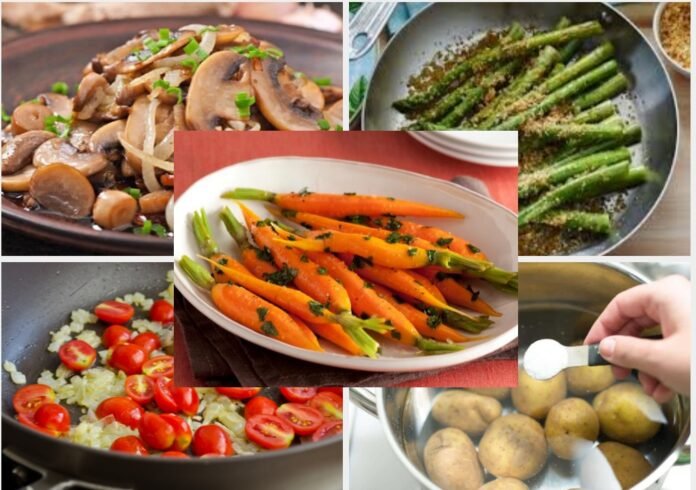While a diet rich in fruits and vegetables is universally praised for its myriad health benefits, not all vegetables are created equal when it comes to consumption in their raw state. While some veggies offer optimal nutrition when consumed raw, others may pose health risks or be challenging to digest in their uncooked form. To shed light on this topic, experts in nutrition and culinary arts offer insights into vegetables that are best avoided raw and the reasons behind their recommendations.
- Potatoes: One of the most commonly consumed vegetables worldwide, potatoes, should be avoided raw due to their high starch content. Raw potatoes contain resistant starches that can be difficult for the body to digest, potentially causing digestive discomfort. Additionally, certain varieties of potatoes contain toxic compounds called solanine, which can lead to adverse effects when consumed in large quantities. To enjoy potatoes safely, experts recommend cooking them thoroughly through methods such as boiling, baking, or roasting.
- Eggplant: While eggplant is a versatile and nutritious vegetable, it contains a compound called solanine, which can cause gastrointestinal upset and discomfort when consumed raw. Cooking eggplant helps break down solanine and other potentially harmful compounds, making it easier to digest and enhancing its flavor and texture. Grilling, roasting, or sautéing eggplant can transform it into a delicious addition to various dishes, from ratatouille to baba ganoush.
- Kidney Beans: Kidney beans contain toxins called lectins, which can cause food poisoning when consumed raw or undercooked. Raw kidney beans contain a higher concentration of lectins, which are deactivated through cooking. To ensure safety, experts advise soaking kidney beans overnight and cooking them thoroughly before consumption. Boiling kidney beans for at least 10 minutes can help eliminate lectins and other harmful substances, making them safe to eat.
- Rhubarb: Known for its tart flavor and vibrant color, rhubarb is a popular ingredient in pies, jams, and desserts. However, rhubarb leaves contain oxalic acid and anthraquinone glycosides, which can be toxic when consumed in large quantities. While rhubarb stalks are safe to eat and can be enjoyed raw in moderation, it’s crucial to avoid consuming the leaves. Cooking rhubarb stalks, whether in a pie or stew, helps neutralize oxalic acid and renders them safe for consumption.
- Mushrooms: While certain varieties of mushrooms can be enjoyed raw in salads or as garnishes, others are best consumed cooked. Cooking mushrooms helps break down tough cell walls and enhances their flavor and digestibility. Moreover, cooking mushrooms can eliminate potential toxins and pathogens, making them safer to eat. Experts recommend sautéing, roasting, or grilling mushrooms to unleash their full flavor potential and maximize their nutritional benefits.
- Sweet Potatoes: Similar to regular potatoes, sweet potatoes should be cooked before consumption to improve their digestibility and unlock their nutritional potential. Raw sweet potatoes contain starches that are difficult for the body to digest, potentially causing bloating or discomfort. Cooking sweet potatoes, whether baking, boiling, or steaming, helps break down complex carbohydrates and makes them easier to digest. Additionally, cooking sweet potatoes enhances their natural sweetness and caramelizes their sugars, creating a delicious and nutritious addition to meals.
- Green Beans: While green beans are commonly consumed raw in salads or as a crunchy snack, experts caution against eating them uncooked due to their tough and fibrous texture. Raw green beans can be challenging to digest and may cause gastrointestinal discomfort for some individuals. Cooking green beans, whether blanching, steaming, or sautéing, softens their texture and enhances their flavor while preserving their nutritional value.
In a nutshell, while vegetables are an essential component of a healthy diet, not all varieties are suitable for consumption in their raw state. Certain vegetables contain compounds or toxins that can be harmful or difficult to digest when consumed raw, necessitating cooking to enhance their safety and palatability. By understanding which vegetables are best enjoyed cooked, individuals can make informed choices to optimize their health and culinary experiences. With proper preparation and cooking techniques, vegetables can be transformed into delicious and nutritious additions to meals, contributing to overall well-being and enjoyment of food.
